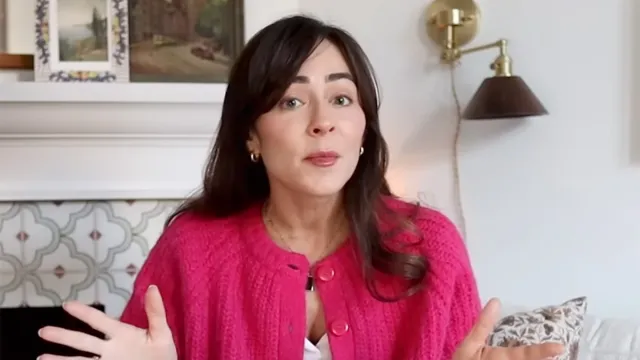She Broke Free From a 15-Year Food Obsession Using These 8 Daily Habits
Most of us have experienced it: that constant mental chatter about food, the endless calculations about what to eat or not eat, and the emotional drain that comes with it. For YouTube influencer Caroline Winkler, this struggle was all too real. After battling eating disorders and spending 15 years searching for answers, she finally found her way to food freedom. Whether you're dealing with disordered eating or simply want to stop overthinking every meal, Caroline's honest insights might be exactly what you need.
Understanding Food Obsession
"That food fixation, whether it's starving yourself or binging or purging or just having a casually disordered relationship to eating, it can be really isolating," Caroline shares in her post. According to WebMD, this fixation can develop into orthorexia, an unhealthy obsession with healthy eating, where individuals "spend hours thinking about food and planning meals."
The Journey Takes Time
"The first requirement is a lot of time," Caroline emphasizes. After being hospitalized at 16 with an eating disorder, she learned that quick fixes don't exist. "When I had disrupted my intuitive relationship to eating, it was difficult to restore it. I have dropped 35 pounds from the weight you see me at now. My heart rate was 40 beats per minute. I was very, very ill."
Breaking Down Food Restrictions
One of Caroline's breakthrough moments came with food freedom. "I let myself access the whole spectrum of foods that I'm not allergic to," she shares. "As soon as you make something off limits, as soon as you're labeling something like bad or untouchable, guess what you're obsessing over? It's a shortcut to obsession." WebMD notes that avoiding certain foods or "avoiding eating food prepared by others" can be warning signs of disordered eating.
Managing Your Energy, Not Just Calories
"The amount of willpower you have is finite," Caroline explains. "When my willpower is low, it is taking every ounce of energy and restraint and mental focus to eat normally." She plans her meals according to willpower levels, noting that "the lower my willpower is, the more I'm obsessing about the goal."
Finding True Satisfaction
"Making sure I'm satisfied after every meal was a huge turning point," Caroline reveals. "If you're feeling hungry and not satiated all the time, then you're thinking about food all the time, and then you're obsessing over food." WebMD supports this approach, warning that severely limiting food variety can lead to malnutrition.
Recognizing Emotional Triggers
"For me, and I think for most people, it's pretty emotional—family stress, holidays, things getting out of my control," Caroline shares. This aligns with WebMD's identification of psychological risk factors, including perfectionist tendencies and anxiety.
RELATED: This Grandmother Lost 200 Pounds in 23 Months by Walking Just 2 Blocks a Day
Creating a New Balance
"I used to think of balanced eating as being like every single day is perfectly balanced, which life doesn't happen that way," Caroline admits. "Balance includes getting a lot of nutrients. It includes feeling satiated, includes indulging, and it also includes not indulging every single little whim."
Rebuilding Body Trust
"Learning to trust your hunger signals was the hardest thing to restore," Caroline reflects. "These days, when I wake up starving, I trust that it's for a reason, and I trust that when I eat a bigger breakfast, my body needs it." WebMD recommends mindfulness meditation and relaxation techniques as ways to rebuild this trust.
The Role of Social Media
"One of the best things I ever did for myself was to purge my Instagram feed," Caroline shares. "We covet what we see every day." This connects to WebMD's recognition of social/cultural influences on disordered eating patterns.
RELATED: This 35-Year-Old Finally Built Muscle After Stopping These 7 Training Mistakes
The Path to Recovery
Caroline's journey shows that recovery is possible: "It's a huge point of pride for me that I am at the state of functionality and balance even that I'm at right now. The greatest tragedy was this immense amount of mental energy that I was putting towards thinking about food, avoiding food, getting food, resisting food." WebMD says that treatment should focus on developing a healthier relationship with food while maintaining good nutrition without anxiety and rigid rules.
The journey to stop obsessing over food isn't linear, but with proper support and strategies, it's achievable. As Caroline concludes, "I'm going to say it's the most impressed with me for it. I think it's the hardest thing I've done." Her story, backed by medical understanding, reminds us that with time, patience, and self-trust, we can all develop a healthier relationship with food. And if you enjoyed this article, don't miss I'm a Nutritionist and Here Are 25 Weight Loss Truths You Need to Hear.





